.
.
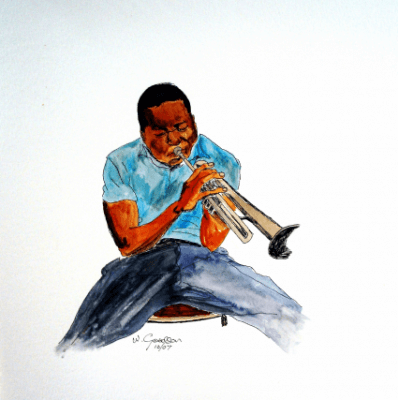
“Clifford Brown” is a painting by Warren Goodson, a Saxapahaw, North Carolina artist whose work is driven by his appreciation for Black culture. With his gracious consent, Mr. Goodson’s art is featured throughout this collection.
.
.
_____
.
.
“Poetry is eternal graffiti written in the heart of everyone.”
-Lawrence Ferlinghetti
.
“Music washes away the dust of every day life.”
– Art Blakey
.
.
The 43 poets who contribute to this collection communicate their heartfelt passion for the artistry and inspiration found in jazz music, and help readers “wash away the dust of everyday life” – a special gift to share during this restless summer of discontent…and hope.
As always, thanks to the poets, and I hope you enjoy…
Joe
.
.
.
_____
.
.
.
This quiet fire (with Roy Haynes)
sets free
the jazz
inside the mind
bend me
onna
search for a few extra rooms
to move-in
to move around
to space-out on any burning moment ——
…….be a man on fire
this quiet fire
sets the mind
off – a journey
to somewhere/to anywhere
all within the vastness
of a
…………crooked
…………golden
…………silence.
.
by Anggo Genorga
.
___
.
Jelly Roll Morton
On my birthday in 1917, Jazz
was first recorded.
The time of Jelly Roll Morton was at
hand—the king of Blues,
The king of Jazz
blessing the dreams of angels
to pass
from vinyl to needle,
dancing cheek to cheek
a new sway being born.
.
by David Sweet
.
___
.
Bill Evans
In a world that clangs
………………………………………….and jars
…………………………….scrapes
………………………………………..and moans
He gives us silk
…………………………….butter
………………..pearls before wine
Blue
……..So Smooth
……………………..So goes down Easy
……………So sighs
……………………with Comfort
Sure
……………I tune in
…………………………to the Others
I nod
……………I tap
…………………………I take five
But who else slides in
………………………………………..to the Universal Groove
……………………..slips out (seamless)
……………gives us 88 reasons to believe
………does this all so well?
…………………………………………………….No one.
.
by Bob Walters
.
___
.
Carmen, Etta, Etc. — A Love Poem
Hey lady, sing me some blues.
Choose something dreamy and sad,
pain no whiskey can kill.
Don’t want nothing’ about
“Love bustin’ out all over” —
I’ve had that wet towel
snapped across my ass.
So, don’t talk to me sweet.
Baby, sing me some heat.
.
by Russell duPont
.
___
.
If Jazz Were A Woman
If jazz were a woman
she would have big lips,
wide hips, and luscious thighs.
She would have caramel-colored
eyes and a smile that could not
be denied.
If jazz were a woman
she would be the most
beautiful thing on Earth;
the jewel of the Universe;
the most incredible rap verse!
If jazz were a woman
she would smell like
Frankincense and Myrrh.
Everyone would be captivated
by her!
If jazz were a woman
she would steal
the hearts of men; lead them
to sin. Her influence would
have no end.
If jazz were a woman
she would be the ultimate
source of stimulation,
motivation, and cosmic
vibrations.
She would rock
this entire nation
with rhythmic notes,
she would be just that dope!
If jazz were a woman
I would wrap her sleek,
silky body around mines
to inhale her divine.
I would beg and beg her
until she promised to always
be mines.
.
by Christopher D. Sims
.
.
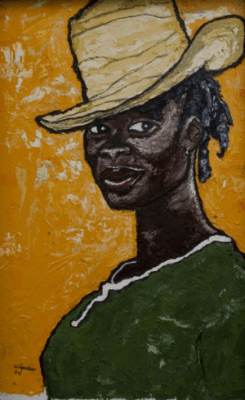
“Dig This,” by Warren Goodson
.
.
Roll Call
So many names to learn.
Tootie, Eddie, Jackie, Freddie,
Sonny, Sammy, Sidney, Teddy.
Looking sharp, and playing steady.
You better be ready.
Bill. Bud. Cedar. Lionel —
Listen! –Erroll, Oscar, Tatum.
Keep up with them, if you can.
Break some eggs into your pan.
Here comes Grady. Chico. Art.
Elvin, Max, and Philly Joe.
You’re up soon, on that saxophone.
You better scramble.
Then, RED! Doc, Dolo, Cannonball.
Making folks Diiiizy.
Zoot. Flip, Buster.
Testify, now. Tell me how.
Louis and Clark. Clifford and Sweets.
Gotta play like you could travel for Miles.
The royals, Earl, Count, and Duke.
Mystics Raashan, Ornette, Monk.
Pharoah, Sun Ra, yes, and Mingus.
……………….The kid’s mind tumbles.
……………….His thoughts are clanging.
……………….The names keep changing.
……………….The names keep coming.
What’s your answer? It’s your solo.
Dolphy, or the gypsy, Django?
Arnett? Lester? Dexter?
Lockjaw?
……………….The kid is silent. His bluster is gone.
Did you think it would be easy,
To be as free as
Bird.
.
by K. Roberts
.
___
.
Desafinado
I love that flip defiance in
Joao Gilberto’s original version,
the careless subtlety
of his anthem for Bossa Nova.
The English version is a corny love song
but I never learned Portugese.
I wish someone should try
that translation one more time.
Maybe it’s kind of late:
bossa nova might still be
bossa, but it ain’t so
nova, any more.
.
by Charles Joseph Albert
.
.
.
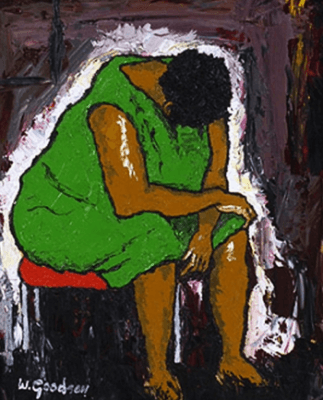
“Misery,” by Warren Goodson
.
.
You Don’t Know What Love Is
Trane’s mighty horn gently nudges you, suggests
……………..you don’t know what love is, elicits
……………………………memory, sorrow, loss,
and the realization what once was
……………..will never again be,
……………………………and tenderly Trane’s sax
suggests loss can be transcended,
……………..but not without passing through grief,
……………………………all healing rooted in fresh growth
replacing those years once rich in feeling,
……………..now empty, forlorn — abandoned, lost, deprived;
……………………………by tune’s end Coltrane sails you to fresh growth,
where a tranquil future awaits, if you are brave enough to embrace it,
……………..embrace it,
……………………………embrace.
.
by Michael L. Newell
.
___
.
Joshua Redman
Every time he plays
he reminds me of a love i
should’ve had, but never happened
every time, he changed horns
they remind me of
her
when i first met her in the
music listening room
she was a dainty little thing
like the soprano sax
he plays
when he changes to a tenor sax
she is an older, wiser, meaty
and curvy
a perfect S shape
the tones he blows, from it
are fleshy and womanly
as her hips
as he plays, i think about
what could’ve been
and the love that never
was
i didn’t hate her for
cheating on her husband
i was only mad
she didn’t cheat with me…
.
by Erren Kelly
.
___
.
Indigo statue (in the Future)
…………………….inspired by Jay Chollick’s poem Blue
When my baby says goodbye
to the big, awful, blue world
by his hand or not,
paint my organs in blue
like the nudes of Matisse,
as I wear black for the
rest of the year,
my heart will beat blue
with its sinews and veins
so both love and obligations
won’t be in vain—
the whole damn year of mourning
will be blanked out with
the blessed sun,
my lungs and skin will hold
the same melancholic tincture
until
eventually the sun
will shine for me again,
changing my body and visage
green in its golden light,
then, normal again
as if the tragedy never happened,
never frozen in place—
when my baby is gone
if my baby is gone
.
by Carrie Magness Radna
.
___
.
The Very Thought of You
………………………..inspired by Nat King Cole
your fins flare for dominance
your face disappears under a lily pad
……………….reappears when I hum
………………………a Nat King Cole classic
your eyes beckon
……….round opal stars under blue lunar light
your curved lips blow bubbles
……….tease me with fishy embrace
your desire craves bug bites
………….& I give in to your whims
your lips take what I offer
……….& like some guys
……………….you swim to your “man cave”
………………………& like you
………………………………I take what I need
………………………………seek sanctuary within myself
……………………………………….even behind this mask
.
by Patricia Carragon
.
___
.
Was I the Blame
Packed his clothes, horn, and his favorite LPs
Pointed to a stack saying you can have these
To spite him I said no thanks, holding back
tears as my heart breaks
He put his refused albums in a wooden crate
Sat them at the curb, I loved you, his last words
He got in his car, drove away out of sight
I brought his music inside, then sat down and cried
He left me Coltrane’s Ole, I let it play all-day
And into the night, my hands clutched tight,
staring into space, a refrain of his name
a needle stuck in place, was I the blame?
.
by Aurora M. Lewis
.
___
.
Lady Day
It ain’t the blues. I don’t know what it is, but you got to hear it.
……………………………………………………Ralph Cooper after hearing Billy Holiday
Her first note wails amber
smoke near overhead pipes above
the guitars. It wavers
and rolls r’s better than spring.
The boys find her
key and throw back
phrasing like pulls on a strong
drink. From the balcony,
a slip of paper falls, sways,
wings, backs, halts. Spins
once and then descends into
the crowd, never spiraling
the same note twice.
Lost after flight. Arms wrap
around her song as it turns
into drums, smoke, and the
green moon. I got it bad
and that ain’t good she says
A man in a white cotton undershirt
rises from the orchestra pit,
raises a trumpet to his
lips, and blows. So this is
how music feels, so this is
how it is when a man really wants
and a woman doesn’t
sing as if the ground was unbearably hot.
.
…………………………..(originally appeared in California Quarterly).
.
by Millicent Borges Accardi
.
___
.
Ode to Loneliness
There is virtually no sound, just a receding distant noise,
a single wave pulsing at its very end. Alone here, steeped in
disquieting thoughts trying to burst into song, fumbling to
utter a single word, any word.
Still, these lips touch the air and this body is a foreign language
addressing a foreign world. I say, dig deep, my love, let us embrace
this great void as an old friend, perhaps then we shall
discover each other far on the other side of alone.
.
by David Dephy
.
___
.
All I Could Do Was Cry
As stories crossed the screen,
Etta James sang
All I Could Do Was Cry.
Chapter after chapter,
I would lose him again,
and he would lose his lovers.
Some said goodbye,
others perished—
either by accident,
childbirth,
or assault.
Each woman,
different and similar—
each woman had him,
each woman stood in for me.
Paragraph after paragraph,
he lived on.
Revenge was telling me,
Have him die,
save his exit for the end.
But like Etta,
I still loved him.
Unlike the song,
absolution found love
in loss.
.
by Patricia Carragon
………………………………..(published in Poetrybay, Winter 2018/19)
.
.
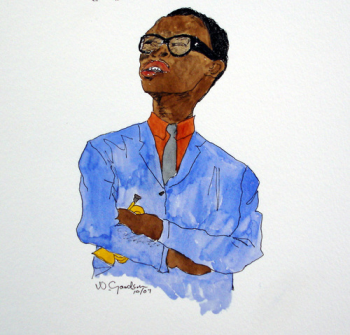
“Don Cherry,” by Warren Goodson
.
.
when music
she is scrubbing
…………..the back stairs
or mending
…………..a three-corner tear
in the flour-sack pillowcase
or dusting
…………..every pulled-out
unread book from the shelves
when the music sweeps into her body
a pewter-dark river illuminated by lightning lighting the night sky
swaying through striated clouds bent with grace into a narcissus
neck bowing to snow to freezing rain to drought hair fanning
spine supple limbs in free fall . . . then
air unwashed skin cold
she scrubs the stairs
she mends the pillowcase
she dusts books pulled from the shelves
the unfathomable brooding shelves
.
by CJ Muchhala
.
___
.
In the Pocket
One…..wheat penny, ‘44
Two…..Jolly Ranchers (by the door)
Three…Lego bricks, neon green
What is that supposed to mean?
Let me explain:
………Feeling blah
……………..I have a hunch
………and ask Alexa
……………..Play Jazz Brunch—
………I spiffy up
……………..and shed this gloom,
………be bopping through
……………..each forlorn room—
………strip the beds
……………..to sharps and flats,
………dust in time,
……………..tuck this and that
………in the pocket
……………..of my blue bluejeans,
………riffing along
……………..my way to clean.
What precisely does that mean?
Let me proclaim:
………The company
……………..that came has left
Three…building blocks of good behavior
Two…..fruity little red life savers
One……pitted round of Lincoln luck—
………and jazz that beats
……………..bereft and stuck.
.
by Felicia Chernesky
.
___
.
Déjà Vu Hooey
I’m unceasingly an easy mark
for my own chemistry—something
up my nose, any acrid scent, the way
a soporific wave can wash me
toward a sitting-up dream.
It takes only the chance combo
of some supermarket Manilow
and the semi-rough edges
of sort of burnt-up toast. Blues
for the blues, for times when I’d’ve
preferred the short pang of anything
to that long but dear sense of
So what? And they’re sneaky,
these creepy impositions
from their nerve-inspired nowheres.
Their appearances leave me reeling,
wishing the recalling could be rewound.
But now that I’ve re-self-resuscitated,
staggered into not just any old locale
that’s plattable upon a fold-up map,
all I have to do is snort a counter-
acting whiff from anywhere
between, say, solitude and
the avant-garde—a where
where maybe there’s Charlie Mingus
fingering bass, Jimmy Cobb on drums,
and Victor Borge, “The World’s
Funniest Human,” deadpanning
his happy-birthday Chopin across
Carnegie’s shiniest concert grand.
.
by D.R. James
.
.
.
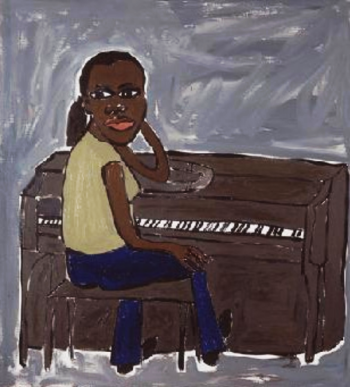
“Young Piano Player,” by Warren Goodson
.
.
.
Monumental
When I was a child, a tapestry of songs wreathed our walls.
My father had a radio in every corner
and tape-recorders rapidly grew hoarse.
At times, he played his golden trumpet,
at others, his silver saxophone,
making every brick vibrate with Hans Last’s.
A colossal table in the parlor
served as my private platform,
where I used to dance to bass,
to trombones
before a huge mirror
that made every wavelet in my body look monumental.
.
by Susie Gharib
.
___
.
Radio Days With Mom
I’m so old I can remember my mom
listening to soap operas on WJR, radio Detroit,
as she cooked, ironed, or did laundry.
We got a TV in 1954, but it wasn’t portable,
and wasn’t in the kitchen, or utility room.
Many soaps were still carried on radio then.
Nor did TV air Karl Haas’s Adventures in Good Music,
one of her favorite shows,
and my introduction to Beethoven,
Schubert, Mendelssohn and other classical composers.
The first songs I learned to sing, from her and WJR were
Patti Page’s hit, How Much is That Doggy in the Window?,
and The Stargazer’s, The Happy Wanderer, val-deri, val-dera.
From mom I also gained an affinity for music
she came of age with: Benny Goodman, Frank Sinatra,
Duke Ellington, The Andrews Sisters, and dozens more.
The majority of recordings in my collection predate me.
Neither of my children have a radio in their house.
And my grandchildren only know radio as that thing
in the car that gets turned on when mom or dad
have forgotten to bring along their podcasts.
.
by Ed Werstein
.
___
.
………..Her Photograph
There is my mother’s photograph–
….A beautiful young woman
……With half turned back
……..And a coy smile
………Thrown over
……..Her shoulder.
It is in black and white,
….But I still remember
……….Her dress
………..Of pink
……With lavender
……..Flowers.
…..She is gone now,
….But I still remember.
.
by Emory Jones
.
___
.
Sound Has a Finite Life
The telephone in my girlfriend’s apartment
in 1982 is still ringing, unanswered,
breaking the laws of physics.
The thudding echo in my heart sinks
deeper and deeper as I keep hearing
my father tell me transcontinentally
of an accident involving my brother.
The sonic boom and WIXY 1260
announced the age of nuclear propulsion
and I’m still twitching to those sweet threats.
And the snow, always falling, always melting.
Snow and silence always go together,
as if we’re straining to hear something—
what did you say?
We like to think that the saxophone solos
of Charlie Parker and John Coltrane
have traveled unimpeded through
an open door or kitchen vent and into
space where they will enter the galaxy
of Alpha Centauri in 25,000 years,
proving to the universe that we
have redeeming qualities.
In reality…
The bowling ball explodes the pins,
the angry words bury themselves
with their target,
the arguments are white noise
self-cancelling,
the sound of things unsaid,
the sound of absence I think
is Bb minor,
melancholy is a major seventh
and we can only really dance
to songs in a minor key.
Are you still listening to me?
I don’t know what happens when I stop.
Sound has a finite life and
I’m afraid I’m not reaching you.
.
by Geoff Polk
.
___
.
Bird and Me
I read somewhere
That Charlie Parker
Ate a rose.
I think it happened
After a long flight
To Denmark or France.
A delegation of
Important dignitaries
Approached him
On the runway
And offered him
A fancy bouquet
As a gift.
I figure he must
Have been both tired
And pumped up a little
After such a long flight
So popping the flower
Into his mouth
Probably seemed
Like the perfect
Thing to do;
A way to fuck
With the squares
And further embellish his legend
At the same time.
Years later
In a far different
Corner of the world,
I ate a flower, too.
I was drinking
In Rozinante, a
Neighborhood bar
In Soho, trying
To win back the love
Of my ex-wife.
As we chatted
I got so nervous
I downed
At least six white Russians.
In that state
I told her, “I’m gonna do
What Bird did to show you
How much I still care.”
Then I plucked a flower
Out of the vase
That was on the table
Between us
And stuffed it
Into my mouth.
It was chewy at first,
Then a sharp chemical taste
Kicked in.
(I found out later
They spray those things
To make them last.)
Shaking, I sprinted
To the bathroom
And became violently sick.
I can’t remember
Ever feeling worse–
I really thought
That something had broken
Inside me.
My ex-wife leaned in the door
To ask if I was ok,
And when I grunted yeah,
She said she had to split —
She’d had a lovely evening
But had to work tomorrow.
.
by Ron Kolm
.
___
.
Summer Love
Blossom Dearie sings “Mad About The Boy,”
in a performance on public television.
Her fingers quicken on black & white bars
as notes fly left & right, she insists she’s mad.
Young men & women fall in love during summer.
Moon climbs up the mountains, lips quiver
during their first kiss under stars.
After the thrill of skin embracing skin
coolness of winds brush apple trees
heart break follows, he doesn’t hold
her hand. She smiles only at strangers.
longing for Jazz warms her heart.
Mad About The Boy returns.
Sitting by the fire place
on the couch, with mint tea.
Outside leaves change colors.
Eyes gaze at the fall of red, & yellow.
Ears absorb the loss & body
curls up with the melody.
.
by Jerrice Baptiste
.
___
.
Emancipation Song
Dolphins swim the vast waters girdling
the Earth, sail through an ocean of air where
…….they trace balletic arcs, re-enter water to roll,
…….twist, turn, dive, and sport agilely through life.
………….We submerge in depths of music:
………….sound, rhythm, and time create seas
……………….of uncharted emotion where we discover
……………….how to soar, dive, and sail,
……………………..unencumbered by clumsy
……………………..bodies, locked hearts, and thick tongues.
.
by Michael L. Newell
.
.
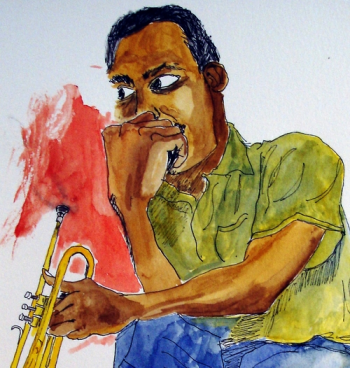
“Art Farmer,” by Warren Goodson
.
.
Manny
Some see it as a pathetic fate
but he’s comfortable enough
in the notes he blows
and the coins that rattle
hi his upended cap.
He’s only ever been good enough
at one thing –
like the guy who builds card houses
or the woman who
makes creatures
from the shadows of her hands
or the poet.
It’s a gift
not a profession.
Hedge fund managers
need not worry.
He’s tried playing in clubs,
as part of a combo,
but he missed the cool outside air,
the freedom of always doing it solo,
the kindness, even the indifference,
of strangers.
10 p.m.,
warm dry summer night,
he’s playing something of his own.
10p.m.,
warm dry summer night,
that surely must be the name of it.
.
by John Grey
.
___
.
Searching for the Next Dave Brubeck — Just You, Just Me
Traveling with a teen on a country road
leading us further into the future to her university
each local radio station blurting blue and dark tones
my daughter turns the dial like a tuning fork
till the next pop song sings of lost love and foul language
indescribable and profane electrically reproduced discord.
Thoughts wander over the wheel beyond wheat fields and hills
where music brought people together
even at times when politics ripped them apart.
I want to turn the car around
back to the piano, the bass, a real saxophone
orchestras full of color, with women and men,
but the tires keep pounding the pavement
in a discombobulated drum roll.
My young adult had already popped in ear pods
car games now only distant memories
of childhood so quickly forgotten.
Let’s take five with Dave, I tell her.
Who is Dave? she asks.
Who is Dave?
A jazz composer I got to see on stage before he died
Dave the oak root hands tap dancing across the keyboard
combining clarinet with upswing bass
the welder of classical and modern
innovative and traditional, patterns and pastels
improv’ with big band, harmony and melody
mixer of black and white and five in four.
The crowd wild with bone-gripping fervor
and muscle moving rhythm
the car now swaying and tapping to beat
my daughter air-playing the sax
I’ll pick up piano, she says,
our little mission searching for the new Dave
time-traveling war hero, joiner of styles, colors, ages
in troubling times, a new Dave
like taking five to be together
while my daughter is the young lion
off to her own den
and I the old tiger seeing her off.
…………………………….(originally appeared in Jerry Jazz Musician July 6, 2020. “Just Me, Just You” and “Young Lions and Old Tigers” are Brubeck album titles)
.
by Julianne Di Nenna
.
___
.
Goodbye Pork Pie Hat with Lyrics
It is the hour cats and desolation roam.
The clock plucks out a canon.
A figure appears between stabs
of horns. Bullet shaped, threadbare
Mingus leans into a hum of window neon.
……..Bright bourbon…………………warmth and power
……..steal your nights and………..then your soul.
It is the hour the mirror comes between
a man and what he does to escape it.
The saxophone blows mortuary grey
down an alley where light leaks
over tenement roofs. Bass flats
and sharps glint off shattered glass
as rain murmurs on pavement.
……..I had her……………….Lord I lost her.
……..I should never………see again.
Block by block, fret by fret Mingus drags
a mesh of chains and his past into sound.
Notes finger through mortar and glass for heart
and for the hollow within the ear where the listener’s
homunculus crouches. Beneath a fire-escape
in a warehouse window, his reflection.
……..When a man comes……..to this corner
……..turn your head and……..walk away
Tires sizzle over pavement. Mingus prays
for the past to end softly, cymbals shining
under a shower of brush strokes. Like a tongue
pressing against an ache, a trumpet plunges
into Hudson River rain. Notes rise wet,
whistle between teeth. Under a bridge
shadow and glows twine, slide East.
……..I had love…………………….Lord, I lost love.
……..Wind and whispers……..whip the sea.
There is a torch, a wail the composer
warms hands over walking huge tones
back home. He draws the torso
of his bass in, warps his arms around her.
Mingus caresses, teases, strikes strings till
they call hunger out of the pit of the bass.
……..I took just……………………what I wanted.
……..Now the clock will………do the same.
Mingus levitates inside his great cloud
of music. Sound swells to twenty times
the size of a man, swells to just the size
of this man’s grief. Horns howl. Every listener
is dwarfed like the homunculus of change
Mingus calls forth from within. Need answers need
till each of us shudders and rises to the music.
.
by Ed Ruzicka
.
___
.
For the First Time
……I Heard Maynard Ferguson
…………Play Trumpet Live! A Prose Poem
“This is sort of dedicated to one of my own super heroes
that’s the great Miles Davis, oh yeah !” Said by Maynard
as he played “Milestones,” at the King Cat Theatre, 2004.
.
……….*****One*****
.
maynard himself, admired so many
………..other trumpet players,
and so many of the players
………..admired him back, so much.
I was so lucky, to be one of them
………..and to meet, and hear maynard in person.
.
……….*****Two*****
.
it was at a fulton, missouri
………..high school …
I played trumpet too
………..and I still had not
figured out
………..the mysteries
of how he mastered
………..circular breathing
he played
………..that day.
so … essentially,
………..he never had to
stop breathing, while playing
………..phrases from his horn.
.
……….*****Three*****
.
I did get started
………..on his breathing ideas,
for playing
………..the high notes,
and how he said to use
………..your lungs & diaphragm.
he was right,
………..when he said to me:
it was all about
………..remembering
each particular high note
………..and how it should sound.
.
……….*****Four*****
.
and also, he said … when I talked
………..with him that day
exactly how you should blow the notes
………..spinning and flowing out, with force:
with your remembered memory
………..with the right extreme air velocity!
.
……….*****Five*****
.
so, before the concert,
………..I thought it would be better
to go back stage
………..to meet maynard before the show.
when I went up to him back there
………..he was very receptive and friendly
especially when
………..I said I played the trumpet.
he talked like he enjoyed being
………..a great trumpet teacher, which he was.
simply thanks, maynard, for your advice
………..for me on playing … which meant so much.
and meeting you in person,
………..and shaking hands !
and also hearing you play,
………..that day !
and absolutely everything, which was
………..all so great !
.
…………………..*****
.
by Alan Yount
.
___
.
The Lesson
A machinist
at Ford
told me he had a guitar
and was taking lessons
it’s hard on the hands
he showed me his fingers
he saw Bill DeArango
the great Cleveland guitarist
in a group with Terry Gibbs
when he got out of the navy
in 1947
this was at the 3 Deuces
in New York
then he shook his head
engine lines were running
the noise was its usual deafening self
I was ready to punch out
it was 1968
I was just out of high school
I’d never been to New York
never been on a subway
or an airplane
let alone the South Pacific
I was wasting his time
so get fucking lost he said
and I did
.
………………………….(originally appeared in The Rising Phoenix Review)
.
by John Stupp
.
.
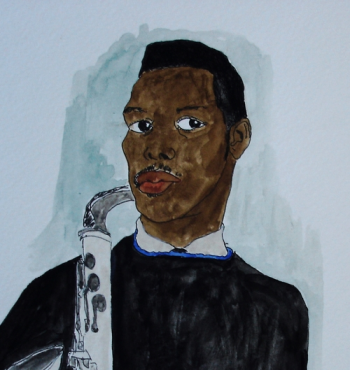
“Ornette Coleman,” by Warren Goodson
.
.
What is Jazz?
The FRANTIC be-bop, Dizzy & Bird
…………Getz & Gilberto, Ipanema
Time-signatures, Brubeck & Desmond
…………George Shearing & Art Tatum
Blue Note, 1957
…………Blakey & all his Messengers
Shorter & Zawinul, Birdland
…………Cannonball, Mercy, Work Song
Slim & Slam, the voutiest
…………Benzedrine in Mrs. Murphy’s Ovaltine
Harry the Hipster & Betty Boop
…………Hinton, Duvivier, Brown & McBride
Stormy Weather, Lena & Bojangles
…………Ammons, Stitt, Dexter & Grover
Miles & Trane, even Hartman
…………Dooley & Hoagy, Play it Cricket
Woody & his Four Brothers
…………Dorsey, Goodman & Shaw
Bechet, Pops & Jelly Roll
…………Ella with Chick & Wacky Dust
Reefer Madness & Amsterdam coffee bars
…………Anita & Roy, Let ’em off Uptown
Symphony Sid & Martin Block
…………William B. Williams & Jonathan Schwartz
Phil Schapp & Bird Flight (Morning, Max)
…………Basie with Lester, Mondays @ Vanguard
Lambert, Hendricks & Ross, Manhattan Transfer
…………Troup & Torme, Route 66
Pete Johnson, Fats Waller & Bob Wills
…………Teagarden, Al Grey & Vic Dickenson
Ellis, Branford & Wynton Marsalis
…………Frank & Sammy (but not Dean)
Sweet Georgia Brown in Polish
…………Dave Van Ronk, Ink Spots & Mills Bros.
Kleztmer & Santana, Chicago Blues
…………Race records & V-disks
78’s, LP’s, cassettes, CD’s & MP3’s
…………‘”Just listen to it all!
….If you can’t tell what it is I can’t tell you!”
.
by Phil Linz
.
___
.
Jazz Is
Jazz is
A way in to a way out
Way up down deep inside
An audio odyssey
A jet stream blowing in from Ghana
Belted out in Congo square
Jazz is a round trip ticket
Round the world of Africa and Africa touched
Jazz is
New Orleans second line
Voodoo queen looking so fine
Jazz is a diva’s honey croon
Looking for love, spell of full moon
Jazz is a man down and out in Chicago
Jamming entranced beyond his sorrow
Jazz is a child with a sense complex
A feel for a world beyond that given
Jazz is Havana throwing off heat
Blaze of a trumpet, bodies in beat
Jazz is a Jew on a clarinet
No hold back, he lets it rip
Jazz is a gypsy heeding the call
To new found sounds in his finger tips
Jazz is in duo with Mozart and Bach
A spoon in tune with Cafe Vienna
Jazz is a niche on a back-street in Paris
Rendezvous lovers, loners and poets.
Jazz doesn’t know solitary confinement
Be big band, be bop, slow motion shuffle
Be ballad, be blue.
Lay back and be cool
Come in and go out
Each time unique
Like the last time
Jazz is
A cargo the trade winds sail
To the door of the depot of the lost be found
To ring your ears and throb your heart
Stormy Monday turning sunny
Feel the blues depart
Jazz is
A riff that walks me home
Is a bass line I climb to the top of the stairs
Is the hand holding mine when nobody cares
Jazz softly whispers – I know how you feel
Jazz is
Chump change and scratch
Is chewing through the gristle
To suck on the bone
Jazz is a holler, a cat call, a hymn
Dollar down, dollar a month
Why I’m so broke I can’t pay attention
Jazz is red wine, white wine, up in smoke
Raising caine, strung on dope
Jazz is singing Lush Life in the shower
Jazz is
An instrument of fingers and tongues
A vessel of muscle and breath
Body and mind in sync with itself
Jazz time tics free off the clock
A serpentine march out of formation
Jazz can leap to the end of the line
Makes every stop along the block
Jazz goes uptown to get down
Calls night time the right time
And the right time is now
Jazz is
A teller of history, a history maker
Jazz be love oh so tender
Off the chart form the heart
Jazz is memory come with forgiveness
Jazz is a bitch
She´s the mother load
Jazz is
Sweet smells of incense, of jasmine, of hormones
Deep note moans, high pitch groans, twists and turns
Sharps that burn, flats that howl
Guitar licks that sparkle
Drum beats driven off the four corner map
And the beat goes on and the beat goes on
Through the Rio night, the Harlem dawn
Jazz is
A gas, a liquid
A solid mass of substance
A floating island in the center
Of the infinite sea
So vast is jazz, so deep and wide
How the middle passage
Placed us side by side
Jazz is
A family, a family of man
Whose taproot is the music of the Af-ri-can
Poly-rhythmic pollination from the talking drum
Graced in gospel, rolls of rag time
Tears and laughter of the blues
The gifts of many makers
Freely given me, freely given you
Jazz is
A way in to a way out
Way up down deep inside
A way to, a path through
The mindless rubble,
The poison propaganda
Lies of the masters
The illusion castors
Now cross you over to another side
No papers, no passports, no human claims denied
No charges pressed, no back-seat guests
Welcome to a dynasty of open borders
Jazz is
A free country
.
by Moe Seager
.
___
.
Street Band
The Trombone is the instrument
what throws off scale
in painting jazz
the bass mimics human form
Daumier’s Louis Philippe
big bottom woman
big belly man
pear shape tones
you can sit on
drums spread out
a Proustian meal
dinner at an Ethiopian restaurant
flavors and variations on plates of many sizes
cymbals the voice’s horns flicking through
the weather of the song
trumpet flute clarinet violin alto sax
the small instruments
vary the form of the head
experiment with the space
of lips through horn
to hand to rib
and the bigger saxes
do the same from the sex
self measured in brassy reflection
the piano is just keys
optical illusion there and not there
shiny textured Escherness steps
to use or not use
but the Trombone
leads with its chin
sticks out in the crowd
upstaging character actor
with a big nose
sticking out
drawing untoward lines
slide searching over and between
other players
almost going off the page
trying to fit while demanding more room
like one Rivera calla
in a Mondrian
.
by Michael Vander Does
.
.
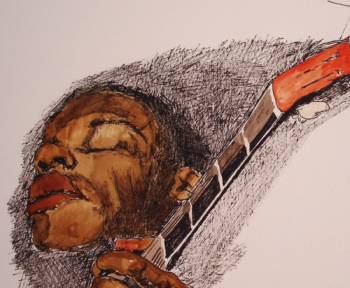
“Grant Green,” by Warren Goodson
.
.
Courting
on
lips, when bitten,
Chet Baker
in a smooth undershirt
leaning back
out a fire escape
while the red
is still dawn. Man,
match
your lips against
my metal, brand the
brass bell
mouth with
still potency
and luck.
You breathe
Not just to yourself
I want this
stain to last
until I’m flush
and collapsing, my
heart degraded
into its own
compartment.
.
by Millicent Borges Accardi
.
___
.
East Of The sun
East of the Sun
West of the moon
Dizzy’s be-bop
falls hard
as coal dust
upon hobo camps
aglitter
like affluent effluvia
of a gone city
gone mad.
.
by Edward Sheehy
.
___
.
Cohesion, Sweltering.
……………………..(for Elvin Jones)
Silky textured machinations,
stumbled out, industrial,
spilling mess-wise and diverse.
Divisions of meter,
parceled infinite and chronological.
The clank of metal brushings,
tippled centrifuge split iron snap rolls.
A vertical down-drop fantail swoon.
Beholden and purposed,
intricate wax-like synaptics,
sheened sidelong and arched.
A crumpled lean,
to both sides of the path.
A clattering display.
.
by Freddington
.
___
.
From the Grave, Bill Evans Sends His Regrets
……………………………..After Cornelius Eady
Poor listener—
your poem resurrects me
as the sublime poet of jazz
but you have it wrong
I was trying for Bud Powell
can’t you hear
my fingers like drumsticks
my left hand creeping closer
to my right
hello!
and the notes—
…a line in long array…
like Whitman’s
Calvary Crossing a Ford
and before you know it I was a junkie
with bad teeth
bad posture
and glasses
and Philly Joe telling me what to do
with my sins
I was
a piano player on the jazz Titanic
who never learned to swim
who drowned an ocean with both hands
because it was all I had
that
and the classics
and math
which was never my best subject
.
by John Stupp
.
.
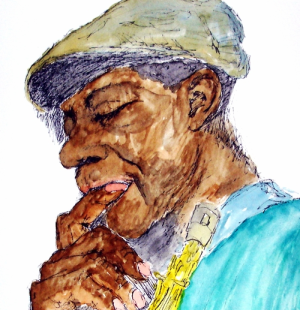
“Charlie Rouse,” by Warren Goodson
.
.
Back Roads
front porch man
guitar playing
three legged stool
broken window
young girl singing
foot pressing
years of creaking
pine floor
bare light bulb
swaying under
evening breezes
fly paper buzzing
paint chipped door
screens patched
and re-patched
heaven got the eye
on back roads
ear scratching dogs
magnolias and
hanging moss
and songs soaked
in soul
.
by Roger Singer
.
___
.
Psyched by Miles
This could be any road
that starts with a hatted sun
and ends with the moon in a mask, any road
curving and slipping through lighted trees,
through a mirror endlessly
any magnetic current
reflecting the goatish heat,
the throb of earth’s heartbeat
This could be any liquid road
flowing up a hill,
moving me toward the edge
any elastic path of scattering leaves
stretching time to the limit,
snapping fall in the eye
Strapped to a plank
I move toward a saw-toothed edge,
while a bleeding breeze
scrapes the lake with the mirrored face
A rotund, sanguine moon
severs itself from the earth
as an inescapable tide
drags me onto the blade
This could be any road
I could be
anyone
.
by Phyllis Wax
.
___
.
Melancholy Baby
Melancholy baby,
this autumn morning the tiger lilies
have deserted you, and the distant call
of twilight fades on this grime-filled
porch of regret.
My eyes strain to see what you call
the lines in your frowning face.
As far as I’m concerned,
they are not there.
What is it that takes you far away
from this life on a Tuesday of rain?
You slingshot the missing answer at me.
I see that the answer is “no”,
but now
I’m unsure of what the question was.
“Come to me, my melancholy baby,” and
I’ll play Melancholy Baby on my piano.
And sing it.
For you.
All life long.
.
For Ella Fitzgerald, and for William Frawley (Fred Mertz in “I Love Lucy”), the first person to perform Melancholy Baby, in 1912 at the Mozart Café in Denver
.
by R. Bremner
.
.
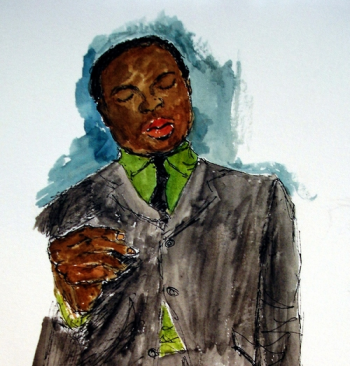
“Freddie Hubbard,” by Warren Goodson
.
.
The Sweet Lips Of Jazz
She has the sweetest pair of lips…..I have ever seen.
Lips, so, soft to the kiss….. like silky-smooth riffs
of vintage jazz music; flowing freely through….. the smoke-filled air
of southern speakeasies. The perfect place to have a drink, …..and take it easy, after a long day’s work …..allowing the music to free us from the day …..slowly massaging
our pain away…..Each note played, …..a subtle subtext, …..a sign of the times spoken
in sign language …..Coolly conveying our stories to the masses; because they need to hear….. our stories. They need to feel our blues …..pouring from the lips of our souls
into ice- filled glasses …..because our blues….. is like a vintage
bottle of wine….. begging to
be tasted.
Until you’ve been kissed …..by the sweet lips …..of jazz music
you will never know….. how it feels to make love….. to the heavenly flow
oozing from the trumpet of Miles Davis; its urgent moans….. stroking your ego.
Eardrums ringing …..with subtle …..sighs …..of falsetto
While dizzy echoes….. collide serenely against …..the ocean …..of your soul.
Until you’ve been kissed …..by the sweet lips….. of jazz music
you will never know the joy …..of having your senses caressed
by the ivory keys….. of Felonious Monk’s piano.
You will never experience …..the sheer & utter brilliance
of its spine-tingling chords …..racing up and down your center
titillating your chakras, …..compelling your soul….. to suddenly implode
with new born stars….. serendipitously singing….. their soulful soliloquys
ever so buoyantly …..as they slowly descend….. from the mouth …..of the heavens.
Until you’ve been kissed …..by the sweet lips …..of jazz music
you could never imagine the bliss….. of being brushed upon the lips
by the wings of a butterfly …..secretly disguised
as a warm and sensual breeze….. on a hot summer’s day
as you lazily lay …..upon your sofa….. curled-up in the arms….. of your lover.
Grooving to the sound …..of Coltrane’s sax….. subtly seducing
the burning incense …..seemingly lost in the thrill …..of the moment.
Twisting and twirling….. like a ballerina…..when suddenly …..our shadows
start to blush ….. as a single ray of sunlight…..boldly struts half-naked across
the shadiest part ….. of the room.
.
by Prince McNally
.
___
.
The Fishingboat Venus
‘Twas on the good ship Venus.
By God, you should have seen us.
– Folk poem popular in student bars and rugby clubs
.
There were these five lads and the five girls,
wives and or girl friends, you might say,
one pair newly minted, one only recently
back between the sheets.
At the reception the talk had been
of the love god Eros, and then the good ship Venus,
and on the Sunday they hired a little fishing boat,
the M.V. Bella Vista, I recall,
with three sprightly grizzled guys to crew,
and went to fish for mackerel.
We sat round the harbour most of the day,
but it was August and it misted,
and then suddenly, suddenly …
have you read The Ancient Mariner? …
the mist half-lifted and the Bella Vista
came shooting through. “Out of the sea came they”.
They came racing nearer, we heard the Ella song,
they were harmonising, “These foolish things
remind me of you”. They were all of them, remember,
from the Swansea Valley and there they do harmonies
from birth. And their song was suddenly ringing,
one of the girls, Carys, mimicking
a trumpet line along the top.
This was the goddess Venus, rising from the sea.
.
(first appeared in Snakeskin (London UK) in 2014, and later in the poet’s 2017 collection Robeson, Fitzgerald and Other Heroes).
.
by Robert Nisbet
.
___
.
Finding Standards
………………………………………………A standard: (especially with reference to jazz or blues) a tune or song of established popularity
Prior to this poem
Written to the poet/reader.
I thought, in fact,
The leader of the pack
May be the art of music.
Poetry a form read rarely,
Melody here, everywhere
And squarely in the senses.
If it’s hard to judge the quality
Of poetry,
How hard it must be
To judge music?
Genres are labile and fickle;
But the faithful stick to one, life through.
‘Elvis lives’ to those of seven- eight- and ninety-two.
As for my life’s taste born when big bands were ‘the big It’
I grew to be a jazz pianist singer.
When it was oh so hip to be so hip!.
Passing by me, hip hop, rap,
Sapping energies to spare..
I, the cool, jazz improviser.
Gave me Lambert, Hendricks, Ross,
Corea, Brubeck, Jarrett, Getz.
Trumpet, sax, vibes, drums and bass.
Virtuosity that’s boss.
Are standards fixed?
Not, no, and nix!
They’re what each generation gets
And falls in love with.
As in politics and history.
No generation knows or cares
What came before:
(Hitler, Mussolini, wars)
Except the few aware
That rage and passion,
Phase and fashion
Come and go.
.
.
by Arlene Corwin
.
___
.
Listening To Stan Getz And Kenny Barron Together
…………………………………...(For Dane Cervine)
It’s as if they reside in separate rooms–
the ears of Getz perched, listening (listening,
always listening!), his mind anticipating
every note that Kenny Barron is about
to play while he himself constructs his own
riffs in a space apart—and Barron does the same
with Getz, from his own room.
…………………………………………………..Yet
they are, musically, Siamese twins
separated at birth, united in song—aligned
in surreal synchronicity, serendipity:
the result a thing of beauty, zany, quirky,
random, but sublime.
………………………………….Such artful
interaction occurs of its own accord,
as natural as breathing, each artist
creating a universe of his own, in total
harmony with what is not his own (Stan’s
Kenny’s; Kenny’s Stan’s): a miracle
beyond comprehension: enchantment,
wordless otherworldly wonder
built on familiar themes and tunes–
“East of the Sun,” “Night and Day,” “Like
Someone in Love,” “There Is No Greater
Love,” and “Gone with the Wind.”
They complement, “comp,” enhance and
offset each other beyond belief, but you
can hear it as faith—this state we all
desire to reach in whatever we do, but seldom
attain, whereas they do, often: becoming
friends for the first time, over and over
again, anew, as if they’d just met—temporal
but eternal, re-creating: to each his own
yet always one another’s—comfort,
contradiction, confirmation unrestrained,
reconciled to every possibility: grieving
and gloating, rising and falling, unzipped,
tightly sealed, benighted and betrayed,
welcomed and reluctant: both the Blues
and cosmic joy, undistinguishable, side
by side, every secret corner of the soul
disclosed.
……………….Holy improvisation!
Wu wei (無爲): “inexertion,” “effortless
action,” free-flowing spontaneity and
savoir-faire, efficaciousness, Alpha and Omega–
father, son, and holy ghost.
……………………………………………………..After
one tune is completed, another will
commence—an endless suite, on and on.
They never wish to leave this state, their
separate but equal rooms—not even
to shake hands in whatever corridor
may adjoin them, or slip some skin—for that
is just what they’ve been doing all along,
musically: no quandary to be resolved
or outcome to be acquired: just solid
sound in song, perfect in every part.
“That’s a take”–then they move on
to even more masterful uncertainty.
.
by William Minor
.
___
.
Ode to Rudy Van Gelder
There are times when I am listening
to an old jazz record that I drift off,
ride the notes and riffs off into some
other dimension that’s hard to describe.
I turn the volume on the stereo up a bit,
close my eyes, lean back, and go there.
Eventually I come to, find the LP sleeve,
look down and see your name there and
start to imagine you in the control room
in Englewood Cliffs or in Hackensack.
Think about all of the hours upon hours,
and days upon days that you spent there,
recording them, take after take after take.
I have been looking for your biography,
but I’ve been unsuccessful in my search.
Maybe it doesn’t exist yet. And maybe
that is better. I don’t know very much
about you. Seems like you had a real
ear for the stuff. I can only imagine.
.
by Scott Silsbe
.
___
.
A Whiskey Sour at Yardbirds
what was Dexter’s Round Midnight remark
concerning
conviviality
Anyway
sometimes it’s not about food
service friends atmosphere passersby
glimpsed outside
rather an incongruous coming together
like
Ahmad’s play does
& Phineas’ did
Bud Brad Bill & Fred too
it’s the moment when
egg-white foam joins
other classic time signatures
& rims a glass for
flavor
with a dash of arpeggio
ascending
.
by Terrance Underwood
.
.
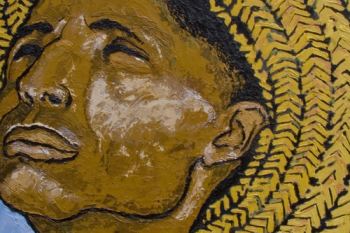
“Searching,” by Warren Goodson
.
.
All the Way Home With Miles
When we were yet groping
You found the notes
Did you
how could
……..you know
that we were right there with you,
……………………………..listening
to hear the steamy passions
…………………………………..you were signaling
Did you think we hadn’t been there yet
………Or that we’d lost our way
………And forever be searching
Were you fearing that again,
………you’d be alone
…………….with your pain
But even your silences were long and telling
A’burst with the emotions you were giving us
Ah, Miles, it was ordained
………And thus, inscribed in prophesy that
….when we couldn’t find the words or
the illusive avenues,
Of our lost yesteryears
You’d transport us there,
………………………….anyway,
……………………………..to anywhere
You’d take us
from then to now,
…….and from here to there
………..to all the way home.
.
by Susandale
.
___
.
Going Home
Tune of great beauty from Dvorak’s
New World Symphony turned into folk song
sung with great passion and control by Paul Robeson,
embraced by Hank Jones and Charlie Haden,
turned into jazz hymn filled with loss, beauty, hope,
reminding one and all that music can contain pain,
almost unbearable pain, and (at the same time)
lift a listener to ecstatic heights that suggest
all is possible, all can be accomplished, and what is lost
can be found in memory, can be found Come Sunday,
can be discovered in the simplest and loveliest of tunes,
sung and swung effortlessly by classical, folk, and jazz musicians.
.
by Michael L. Newell
.
___
.
Blue Train/Blue Note
“You tarnish soft,” I said to fireflies.
I hear a noise from the city.
Blue Train / Blue Note.
I am alone here. Night.
Will you not revive us again, that your loved ones—
the people of morning may rejoice in you, night?
Only the truth will inspire me.
Only the truth will revive me.
“You appear soft,” I said to fireflies.
I hear a noise from the city.
Blue Note / Blue Train.
I am alone here. Morning.
Satisfy us in the morning with your loving devotion, dawn,
that we may sing for joy and be glad all our days and nights.
Revive us, and we will call on your name.
.
by David Dephy
.
.
_____
.
Warren Goodson is an artist whose work is driven by his appreciation for Black culture. He lives in Saxapahaw, North Carolina. His art appears in this collection with his gracious consent.
Click here to visit his website
.
.
___
.
.
.
Poets contributing to this collection (listed in the order in which their poems appeared)
.
.

Anggo Genorga is from the Philippines and works as a manager of a local band called Wonder Woman’s Electric Bra. Recent writings can be found at Horror Sleaze Trash, Devote, Duane’s Poetree, Outlaw Poetry Network, Paper And Ink Zine, Red Flag Poetry, In Between Hangovers, Dubai Poetics, The Odd Magazine and Walking Is Still Honest Poetry Press. Also at Empty Mirror, Mad Swirl, Guide To Kulchur Creative Journal, Silver Birch Press Bukowski Anthology and Verses Typhoon Yolanda, a book for benefit published by Meritage Press and the now defunct The Screech Owl and Dead Snakes.
.
.
___
.
.
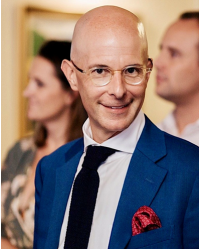
David Sweet is a poet, author, entrepreneur, executive coach, and runaholic. His poetry includes the books, Pop Rocks and Split Infinity Forward. Born and raised in Denver, Colorado, he has called Tokyo, Japan home for the last 20 years where lives with his wife, sons, fish, and running shoes. He can be found www.drdavidsweet.com and can be reached via email at [email protected]
.
.
___
.
.
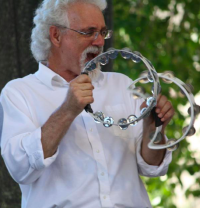
Bob.Walters.grew up in the bayou country of East Texas. After graduating from West Virginia University, he has spent the last few decades teaching Literature, Writing, and Creative Writing in Asheville, NC, where life is good and music is wonderful. He also plays drums in a blues and soul band, writes fiction and poetry, and paints to calm a restless spirit. He is married to his favorite person, and they have three large sons.
.
.
___
.
.

Russell Dupont is an artist and an author whose artwork is included in a number of public and private collections. He has published two novels, King & Train and Waiting for the Turk; two books of poetry; and two non-fiction chapbooks. His essay, “The Corner,” is included in the anthology Streets of Echoes. His work has been published in various newspapers and literary magazines. He was the founder & publisher of the literary magazine,.the albatross.
Visit his website by clicking here
.
.
___
.
.
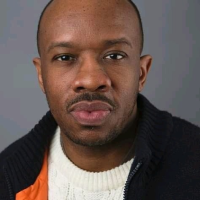
Christopher D. Sims is a writer of poetry, a spoken word artist, and a human rights activist who uses words to inform. Born and raised on the west side of Rockford, Illinois he has been writing since he was nine years old. A published poet, Christopher wrote a poetry and memoir collection entitled “I was Born and Raised in The Rock” in 2020. He is a fellow of the Intercultural Leadership Institute.
.
.
___
.
.
K Roberts is a professional non-fiction writer and also publishes poetry.
Contact the writer
.
.
___
.
.

Charles Joseph Albert writes poetry and fiction in San Jose, California, where he also performs with the South Bay Bones. His work has appeared recently in Spectrum, In Parentheses, and California Quarterly, and a new collection, Confession to the Cockroaches & Other Poems is available on Amazon.com.
.
.
___
.
.
Michael L. Newell lives in Florida. He has two recent books of poetry available through Amazon and Barnes and Noble: Wandering, and Each Step a Discovery, both books published by Cyberwit.net Press.
.
.
___
.
.
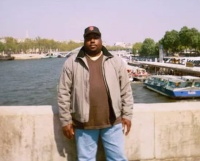
Erren Kelly is a two-time Pushcart nominated poet from Boston whose work has appeared in 300 publications (print and online), including Hiram Poetry Review, Mudfish, Poetry Magazine, Ceremony, Cacti Fur, Bitterzoet, Cactus Heart, Similar Peaks, Gloom Cupboard, .and .Poetry Salzburg.
.
.
___
.
.
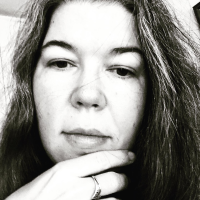
Born in Norman, Oklahoma, Carrie Magness Radna is an audiovisual cataloger at the New York Public Library, a choral singer and a poet who loves traveling. Her poems have previously appeared in The Oracular Tree, Muddy River Poetry Review, Poetry Super Highway, Walt’s Corner, Alien Buddha Press, Cajun Mutt Press and First Literary Review-East. Her upcoming poetry collection, In the blue hour (Nirala Publications) will be published in Fall 2020.
https://carriemagnessradna.com
.
.
___
.
.
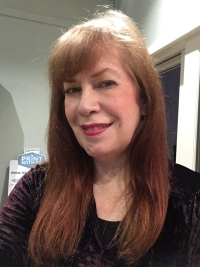
Patricia Carragon’s poem “Paris the Beautiful” won Poem of the Week from great weather for MEDIA. Her fiction piece “What Has to Happen Next” is nominated for Sundress Publications Annual Best of the Net Anthology. Her latest book from Poets Wear Prada is Meowku. Her debut novel, Angel Fire, is forthcoming from Alien Buddha Press this October. Patricia hosts Brownstone Poets and is the editor-in-chief of its annual anthology. She lives in Brooklyn, NY.
.
.
___
.
.

Aurora M. Lewis.is a retiree having worked in finance for 40 years. In her fifties, she received a Certificate in Creative Writing-General Studies, with Honors from UCLA. Aurora’s recent poems, short stories, and nonfiction have been accepted by The Literary Hatchet, Jerry Jazz Musician, The Blue Nib, Trembling in Fear, Jitter Press, Scary Snippets, Copperfield Review to name only a few.
.
.
___
.
.
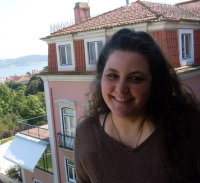
Millicent Borges Accardi has received fellowships from the National Endowment for the Arts (NEA), Fulbright, CantoMundo, California Arts Council, Barbara Deming “Money for Women,” and Fundação Luso-Americana (FLAD). Most recent poetry collection, Only More So (Salmon). IG and Twitter @TopangaHippie
.
.
___
.
.
photo by Donna Termini

David Dephy is a Georgian/American award-winning poet. The winner of the 2019 Spillwords Poetry Award, the finalist of the Adelaide Literary Awards 2019 for the category of Best Poem. He was named as A Literature Luminary by Bowery Poetry and The Incomparable Poet by Statorec. His works have been published and anthologized in USA, UK and all over the world by many literary magazines, journals and publishing houses. He lives in New York.
.
.
___
.
.
.
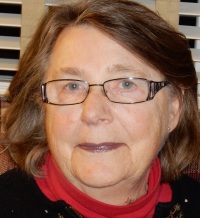
CJ Muchhala has absolutely no musical ability but a great deal of appreciation for and love of jazz and blues. She does, however, try to make music with words which have found their way into a number of journals, anthologies, and art/poetry exhibits.
.
.
___
.
.

.
Felicia Sanzari Chernesky is a longtime editor, slowly publishing poet, and author of six picture books, including The Boy Who Said Nonsense (Albert Whitman). She left the masthead of an academic quarterly to work with people who want to share their writing in print. Her poem, “Mother Tongue,” received an honorable mention in the 2020 Allen Ginsberg Poetry Award. Felicia lives in Flemington, New Jersey. Find her online, with links to recent publications, at www.feliciachernesky.com.
.
.
___
.
.

D.R. James’s latest of nine collections are Flip Requiem (Dos Madres, 2020), Surreal Expulsion (Poetry Box, 2019), and If god were gentle (Dos Madres, 2017), and his micro-chapbook All Her Jazz is free, fun, and printable-for-folding at Origami Poems Project. He lives in the woods near Saugatuck, Michigan.
https://www.amazon.com/author/drjamesauthorpage
.
.
___
.
.

Susie Gharib is a graduate of the University of Strathclyde with a Ph.D. in English on the work of D.H. Lawrence. Her poetry and fiction have appeared in Adelaide Literary Magazine, the Pennsylvania Literary Journal, Mad Swirl, Down in the Dirt, The Ink Pantry, Impspired Magazine, A New Ulster, Westward Quarterly, Miller’s Pond Poetry Magazine, The Opiate, Penwood review, Crossways, Amethyst Review, Synchronized Chaos, Pinyon Review, Leaves of Ink, Peacock Journal, The Blotter, and many others.
.
.
___
.
.
Ed Werstein, Milwaukee, is a Regional VP of the Wisconsin Fellowship of Poets and represents that group on the Wisconsin Poet laureate Commision. In 2018 he received the Lorine Niedecker Award (judged by Nickole Brown) from the Council for Wisconsin Writers.
.
.
___
.
.
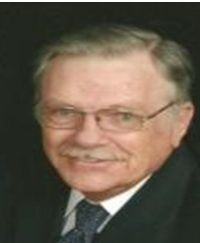
Dr. Emory D. Jones is a retired English teacher who has taught in high school and in several community colleges. He has four hundred and twenty-eight credits including publication in such journals American Poetry, Belle Rêve Review, The Cumberland River Review, and Encore: Journal of the NFSPS. He is retired and lives in Iuka, Mississippi.
.
.
___
.
.

Geoff Polk lives in Cleveland, where he write poems, stories, and nonfiction, and plays jazz saxophone and clarinet. He teaches English composition and literature at Lorain County Community College. He attended Berklee College of Music and received an MA in creative writing from Cleveland State University. He was editor of the literary magazine Whiskey Island. Geoff’s poems and fiction have appeared or are forthcoming in Cobalt Review, Brilliant Corners, Voices of Cleveland, The Little Magazine, Context South, Black River Review, Green Fuse, Coventry Reader, and elsewhere. Nonfiction publications include articles and reviews on literature and jazz. He has interviewed David Foster Wallace (anthologized in Conversations with David Foster Wallace, University of Mississippi Press), New Orleans music documentarian Stevenson Palfi, jazz trumpeter Benny Bailey, and authors Ken Kesey, Studs Terkel, Nat Hentoff, and others.
.
.
___
.
.

Ron Kolm is a contributing editor of Sensitive Skin magazine. Ron is the author of Divine Comedy, Suburban Ambush, Night Shift, A Change in the Weather, Welcome to the Barbecue and Swimming in the Shallow End. He’s had work in And Then, Feuerstuhl, Great Weather for Media, Maintenant, Live Mag!, Local Knowledge, The Opiate, The Brownstone Poets anthologies and the Outlaw Bible of American Poetry. Ron’s papers were purchased by the New York University library.
.
.
___
.
.
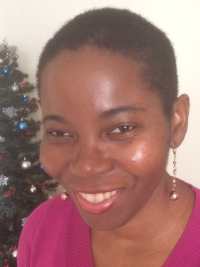
Jerrice J. Baptiste is an author of eight books. She was a budding poet since the age of six in Haiti where she was raised. Jerrice has been published in The Yale Review, Kosmos Journal, The Lake Poetry Journal, The Tulane Review, A Room of Her Own and many others. She is the hostess of “Women of Note” on WKZE 98.1 FM where she plays world music and Jazz for her international audience.
.
.
___
.
.
John.Grey.is an Australian poet, US resident. Recently published in Sin Fronteras, Dalhousie Review and Qwerty with work upcoming in Plainsongs, Willard and Maple and Connecticut River Review.
.
.
___
.
.
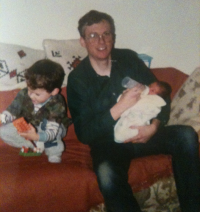
John Stupp’s third poetry collection Pawleys Island was published in 2017. His manuscript Summer Job won the 2017 Cathy Smith Bowers Poetry Prize and was published in August 2018. A chapbook entitled When Billy Conn Fought Fritzie Zivic was published by Red Flag Poetry in January, 2020. (From 1975-1985 he worked professionally as a mediocre jazz guitarist). He lives near Pittsburgh, Pennsylvania and can be reached via email at [email protected].
.
.
___
.
.
Julianne Di Nenna writes from Switzerland and Italy. Her poems and short stories have appeared in: Months to Years; Adanna Literary Journal; Harbinger Asylum; Gyroscope Review; Italy, a Love Story; Susan B & Me; Grasslands Review; Unruly Women Writers (forthcoming), among others. She has won two literary prizes for poetry in Switzerland and was semi-finalist in BrickHouse Book’s Wicked Woman Book Prize.
.
.
___
.
.
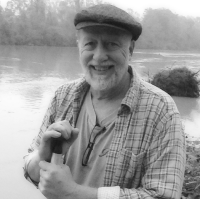
Raised beside creeks and cornfields not far from Chicago, Ed Ruzicka now lives with his wife, Renee, and their doddering bulldog, Tucker, in Baton Rouge. Ed’s second full length volume, My Life in Cars, is set for release in October. Ed’s poems have appeared in the Atlanta Review, Rattle, Canary and the New Millennium Review as well as many other literary journals and anthologies.
More at: edrpoet.com
.
.
___
.
.
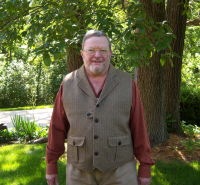
Alan Yount, 72, has published poetry for over 50 years. His poems have appeared in WestWard Quarterly (featured poet for summer, 2018). Big Scream, Spring: the Journal of the E.E. Cummings Society, and Waterways.
He has been in three anthologies: Passionate Hearts, Sunflowers.and Locomotives: Songs for Allen Ginsburg. Alan was one of 31 poets, along with Gary Snyder and Lawrence Ferlinghetti. Also Chrysalis Reader.
Alan plays trumpet and has led his own dance band.
.
.
___
.
.

Phil Linz was born in Brooklyn, NY and has lived in several cities across the United States. He began writing poetry in 1971 and is founder and publisher of Fierce Grace Press, which specializes in chapbooks, believing in the concept of “Publishing Under the Radar.”.His new book, The Chapbooks: Collected Poems, is available on Amazon.
Mr. Linz currently lives in Wilmington, DE; he may be reached at [email protected].
.
.
___
.
.
photo by Mya Smbg
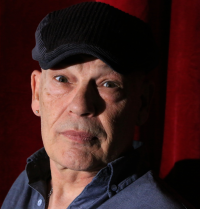
Moe Seager is a poet and jazz & blues vocalist who sings his poems on stages in Paris, New York and elsewhere and has recorded two jazz-poetry c.d.s. Seager founded and hosts “Angora Poets World Caffé,” in Paris, and now hosts the event on Zoom. He also hosts “100 Thousand Poets for Change,” Paris and is one of the coordinators for le Fédération des Poètes, Paris. He has six collections of poetry and currently publishes with Onslaught press, Oxford, U.K. Other poetry collections include Dream Bearers (1990); One World, (2004); We Want Everything in French translation (1994); Perhaps (2006); Fishermen and Pool Sharks Busking (1992). Additionally Seager won a Golden Quill Award (USA) for investigative journalism, 1989 and received an International Human Rights award from the Zepp foundation, 1990. Two collections, We Want Everything and I Wanna Make Jazz To You, Onslaught press, are available from Amazon.com
.
.
___
.
.

Jazz.Poet filmmaker Michael Vander Does is from Columbus, Ohio. He performs with The Jazz Poetry Ensemble (poetry/trombone/leader) (www.makejazznotwar.org). His poetry is informed by avant-garde jazz.
.
.
___
.
.
photo Sarah Pierce Photography
Short stories by Edward Sheehy have appeared online in: The Boston Literary Magazine, The Write Launch, The Book Smuggler’s Den, Frontier Tales, and Lake Street Stories, published by Flexible Press. Dog Ear Publishing released his novel, Cade’s Rebellion. He lives in Minneapolis, on the west bank of the Mississippi River.
.
.
___
.
.
Freddington works as a shipper/receiver in Toronto, Canada, and has been a lifelong jazz fan ever since he was “corrupted” as a teenager by Charles Mingus’ “Wednesday Night Prayer Meeting.”
.
.
___
.
.

Dr. Roger Singer was in private practice for 38 years in upstate New York. He has four children, Abigail, Caleb, Andrew and Philip and seven grandchildren. Dr. Singer has served on multiple committees for the American Chiropractic Association, lecturing at colleges in the United States, Canada and Australia, and has authored over fifty articles for his profession and served as a medical technician during the Vietnam era.
Dr. Singer is the Poet Laureate of Old Lyme, Connecticut. He has had over 1,070 poems published on the Internet, magazines and in books and is a 2017 Pushcart Prize Award Nominee. He is also the President of the Shoreline Chapter of the Connecticut Poetry Society.
.
.
___
.
.

Phyllis Wax writes in Milwaukee on a bluff overlooking Lake Michigan. Her poetry has appeared previously in Jerry Jazz Musician and in many other journals and anthologies, online and in print. A Best of the Net and Pushcart Prize nominee, she has read in coffee houses, bars, libraries and on the radio. Her work has been exhibited with art quilts and weavings as part of poet/fiber artist collaborations. She can be reached via email at [email protected].
.
.
___
.
.

.
R. Bremner has been writing since the 1960’s. He appeared in 1979’s first issue of Passaic Review, along with Allen Ginsberg and Rich Quatrone. International Poetry Review, Oleander Review, Paterson Literary Review, Red Wheelbarrow, and.Shot Glass Journal.are a few of the journals he has been in. Ron has won Honorable Mention in the Allen Ginsberg Awards, and has published six print books, including.Ektomorphic(Presa Press), and thirteen eBooks.
.
.
___
.
.
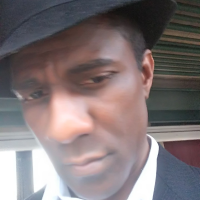
Prince A. McNally is a Brooklyn-born poet, writer, essayist and philosopher whose work has appeared and is forthcoming in numerous literary magazines, journals and anthologies throughout the U.S. and abroad. He is currently working on his first collection of poetry as well as a book of philosophy due out in 2021. To view more of Prince’s work, feel free to follow him on FB Prince A. McNally, Instagram @prince_thepoet, Twitter @princeamcnally. You may contact him via email [email protected].
.
.
___
,
.
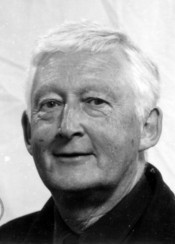
Robert Nisbet is a Welsh writer who once read for an American President, when ex-President and poet Jimmy Carter was guest of honour at the opening of the Dylan Thomas Centre in Swansea in 1994. Nisbet is a Pushcart Prize nominee for 2020.
Email: [email protected]
.
.
___
.
.
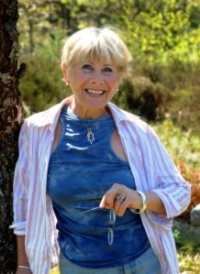
Arlene Corwin…Brooklyn born. Age 85. Harpist, pianist, singer. High School of Music & Art. Hofstra Univ. BA. 2 films (lead in one, composer in the other — see IMDb) original lead in “The Nervous Set, introducing “Spring Can Really Hang You Up the Most”. 19 published poetry books, yogin since the age of 20-something. Lives in Sweden. Jazz musician forever. Mother owned jazz club, The Turf with Slim Gaillard in the 50’s, Hempstead, Long Island. (See.Arlene Corwin. Poetry.com .for longer version.). See Youtube for Arlene and some good tunes.
.
.
___
,
.
photo by Stephen Minor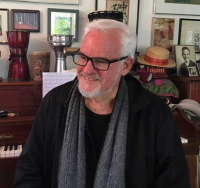
William Minor has published seven books of poetry, the latest Gypsy Wisdom: New & Selected Poems and Another Morning: Poems by William Minor–and published three books on jazz: Unzipped Souls: A Jazz Journey Through the Soviet Union; Monterey Jazz Festival: Forty Legendary Years; Jazz Journeys to Japan: The Heart Within. He plays jazz piano professionally, was commissioned to write a spoken word suite (Love Letters of Lynchburg), and has set poems to original music.
.
.
___
.
.

Scott Silsbe was born in Detroit. He now lives in Pittsburgh. His poems
have appeared in numerous periodicals and have been collected in the
three books: .Unattended Fire, .The River Underneath the City, and
Muskrat Friday Dinner. He is also an assistant editor at Low Ghost Press.
.
.
___
.
.
Terrance Underwood is a retired Rolls-Royce Service Engineer, veteran, College Grad (B.A. History) who has been listening to recorded jazz music since he was 5-6 yrs old. One of his first memories is listening to a 78 version of “Cherokee” by Charlie Barnett.
.
.
___
.
.

.
Susandale’s poems and fiction are on WestWard Quarterly, Mad Swirl, Penman Review, The Voices Project, and Jerry Jazz Musician. In 2007, she won the grand prize for poetry from Oneswan. The Spaces Among Spaces from languageandculture.org has been on the Internet. Bending the Spaces of Time from Barometric Pressure is on the Internet now.
.
.
___
.
.
Click here to read the Spring, 2020 collection
Click here to read the Winter, 2020 collection
Click here to read the Fall, 2019 collection
Click here to read how to submit your poetry
Click here for details concerning our 55th Short Fiction Contest
.
.
.
.
.
.
.
















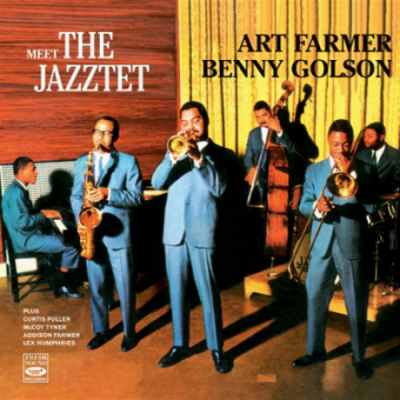
















Fabulous, (and not to lessen the mea ing r ‘fabulous’) AS ALWAYS. I’m overwhelmed by the quality of poetry here, and over-overwehelmed by the dedicated and detailed love of jazz. You are geniuses, everybody!
Of course you are welcome to contact me anytime: Facebook, [email protected]. Youtube, arlenecorwinpoetry.net (or com. I never know which) . With such talent in all of you, I can trust that hearing from any one of you could and would be inspirational.
Fabulous, (and not to lessen the mea ing r ‘fabulous’) AS ALWAYS. I’m overwhelmed by the quality of poetry here, and over-overwehelmed by the dedicated and detailed love of jazz. You are geniuses, everybody!
Of course you are welcome to contact me anytime: Facebook, [email protected]. Youtube, arlenecorwinpoetry.com . With such talent in all of you, I can trust that hearing from any one of you could and would be inspirational.
Alan and Michael-
The Mighty Maynard! And “You Don’t Know What Love Is” – you made my pandemic day.
John
Several thoughts just came to mind while reading this collection. This is one of the most diverse
and interesting collections ever by JJM. Great work Joe! Every poem I read has so much great
style and imagery to offer. Really! Let us all hear it for Jazz Poetry. Best, AY.
Always a pleasure to read. A lively selection of poetry from so many talented writers.
Once again, a strong collection by a collection of strong poets. Thanks to Joe Maita for all his work in putting this together.